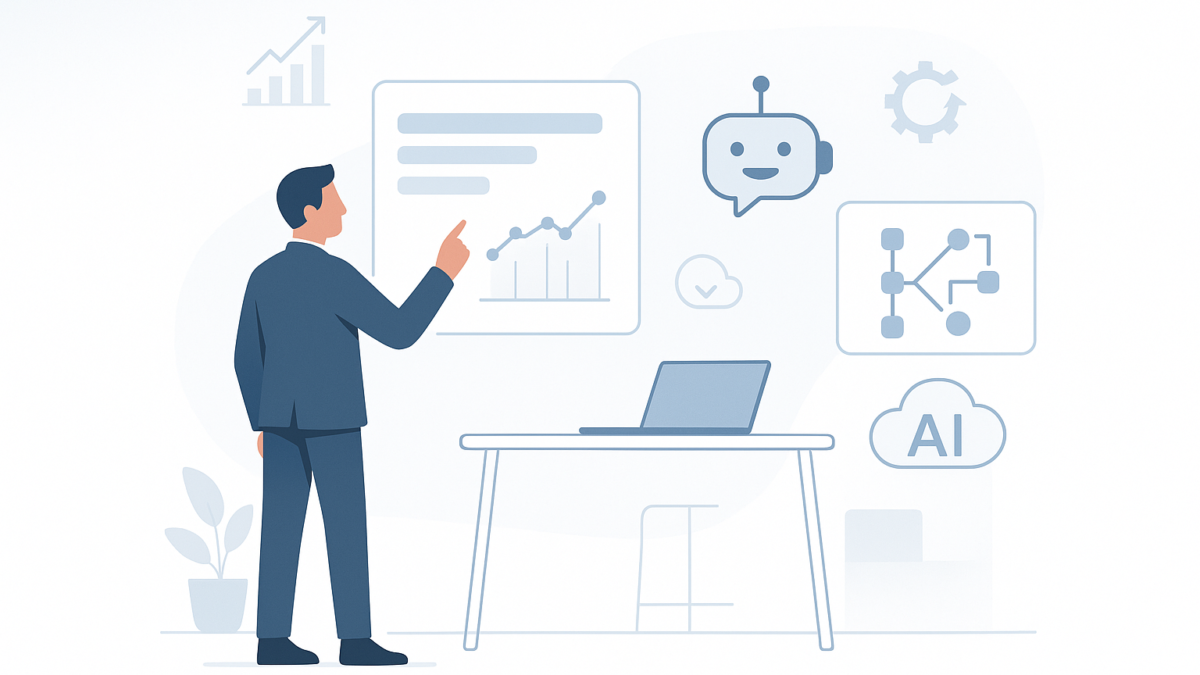How Consultants Use AI for Work in 2025: A Strategic Advantage
Table of Contents
Introduction
In the high-stakes world of consulting, time, data, and insight are the most valuable assets. In 2025, Artificial Intelligence (AI) has evolved from a niche experiment to a mainstream enabler in the consulting industry. Whether you’re a strategy consultant, digital transformation advisor, or management analyst, AI is now your silent partner—enhancing productivity, decision-making, and client satisfaction.
In this article, we explore how consultants use AI in everyday work, the tools leading the charge, and practical use cases reshaping the future of consulting.
What Role Does AI Play in Consulting?
AI in consulting refers to the use of machine learning algorithms, NLP models (like ChatGPT), and automation tools to streamline client services, conduct analysis, generate insights, and improve operational efficiency.
Consultants now use AI for:
- Data analysis and modeling
- Automating research and reporting
- Predictive insights for client strategies
- AI-assisted presentations and content
- Workflow automation
The result? Faster deliverables, deeper insights, and more strategic value for clients.
Key Areas Where Consultants Use AI
Here’s a step-by-step breakdown of how consultants use AI across their workflows:
Client Discovery & Proposal Generation
Before even landing a deal, consultants are using AI tools to:
- Research a prospective client’s business health
- Generate competitor landscape reports
- Draft customized pitch decks or proposals using generative AI
Tools used: ChatGPT, Crystal, Copy.ai, Canva Magic Write
Market Research & Competitive Analysis
Consultants previously spent hours manually digging through reports. Now, AI scrapes, summarizes, and highlights industry trends, news, and data across thousands of sources.
Use Cases:
- Real-time SWOT analysis generation
- AI-generated PESTEL & Porter’s Five Forces reports
- Summarized regulatory landscape for new markets
Tools used: AlphaSense, Quid, ChatGPT Plus (with browsing), Crayon
Data Cleaning & Predictive Modeling
Cleaning raw datasets and running forecasts is tedious—but with AI-powered analytics tools, consultants can automate:
- Data normalization
- Pattern recognition
- Forecasting future outcomes
Example: A retail consultant can use AI to predict customer churn based on POS and CRM data.
Tools used: Tableau + Einstein AI, Microsoft Azure ML, IBM Watson Studio
Strategy Development & Decision Support
AI doesn’t just process data—it suggests strategic decisions. Whether it’s a cost-cutting strategy or a new product launch plan, consultants use AI to simulate and validate various outcomes.
Use Cases:
- Scenario modeling for M&A
- AI-suggested go-to-market strategies
- Financial modeling with automated insights
Tools used: Palantir Foundry, Fyle AI, Mosaic
Presentation & Report Creation
Crafting beautiful decks and well-worded reports is a core consulting function. With AI:
- Slides are automatically generated from research notes
- Executive summaries are auto-written
- Infographics and charts are AI-enhanced
Tools used: Beautiful.ai, Tome, SlidesAI, GrammarlyGO
Real-World Example: McKinsey’s QuantumBlack
McKinsey & Company’s QuantumBlack is a dedicated AI consulting arm that helps global clients embed AI into their operations.
They use proprietary tools like:
- QuantumBlack Horizon – for AI-driven strategy
- Orpheus – for procurement analytics
- Sage – for AI-augmented modeling and performance management
By combining human expertise with machine intelligence, they’ve delivered:
- 10–20% operational efficiency gains
- Real-time KPI monitoring dashboards
- Predictive insights for supply chain resilience
You May Also Like: Can AI Understand Emotion? The Rise of Empathic Algorithms
Benefits of Using AI in Consulting
Here’s why more consultants are turning to AI in 2025:
- Time Efficiency: Automate up to 40% of repetitive tasks
- Deeper Insights: Access patterns and correlations otherwise missed
- Cost Reduction: Fewer manual hours = higher profitability
- Scalable Impact: AI allows consultants to handle more clients with leaner teams
- Competitive Edge: First-movers using AI deliver faster, sharper recommendations
What About Data Privacy and Ethics?
While AI can transform consulting, it also raises challenges around:
- Client confidentiality
- Model bias
- Explainability of results
Top consulting firms use enterprise-grade AI platforms that comply with SOC 2, GDPR, and ISO standards. Additionally, many are training consultants to interpret AI outputs rather than blindly follow them.
Tools & Platforms Consultants Love in 2025
| Function | AI Tool |
|---|---|
| Research & Ideation | ChatGPT, Claude, Perplexity |
| Data Analytics | Power BI + Copilot, Tableau, Alteryx |
| Presentation Design | Canva, Beautiful.ai, Tome |
| Project Management | Notion AI, ClickUp AI |
| Proposal Writing | Jasper, GrammarlyGO |
🧭 Getting Started: How Consultants Can Leverage AI
If you’re a consultant looking to integrate AI into your work, here’s a 5-step starter roadmap:
- Identify Repetitive Tasks
- Research? Reporting? Modeling? Start where time is wasted.
- Pick Low-Risk AI Tools
- Try AI writing assistants or data visualization plugins.
- Train Your Team
- AI is only as good as its user. Build prompt engineering skills.
- Embed AI into Workflows
- Integrate with existing tools like Excel, Slack, and CRM platforms.
- Review Outputs with Human Judgment
- Always validate results to maintain quality and accuracy.
Final Thoughts: AI Is the Consultant’s Edge
In 2025, consultants who embrace AI aren’t replacing their skills—they’re amplifying them. From sharper insights to faster execution, AI empowers consultants to be more strategic, more responsive, and more valuable.
Ready to Future-Proof Your Consulting Practice?
Subscribe to iTMunchfor expert reviews on AI tools, consulting trends, and workflow automation. Stay ahead, stay smart, stay AI-ready.





